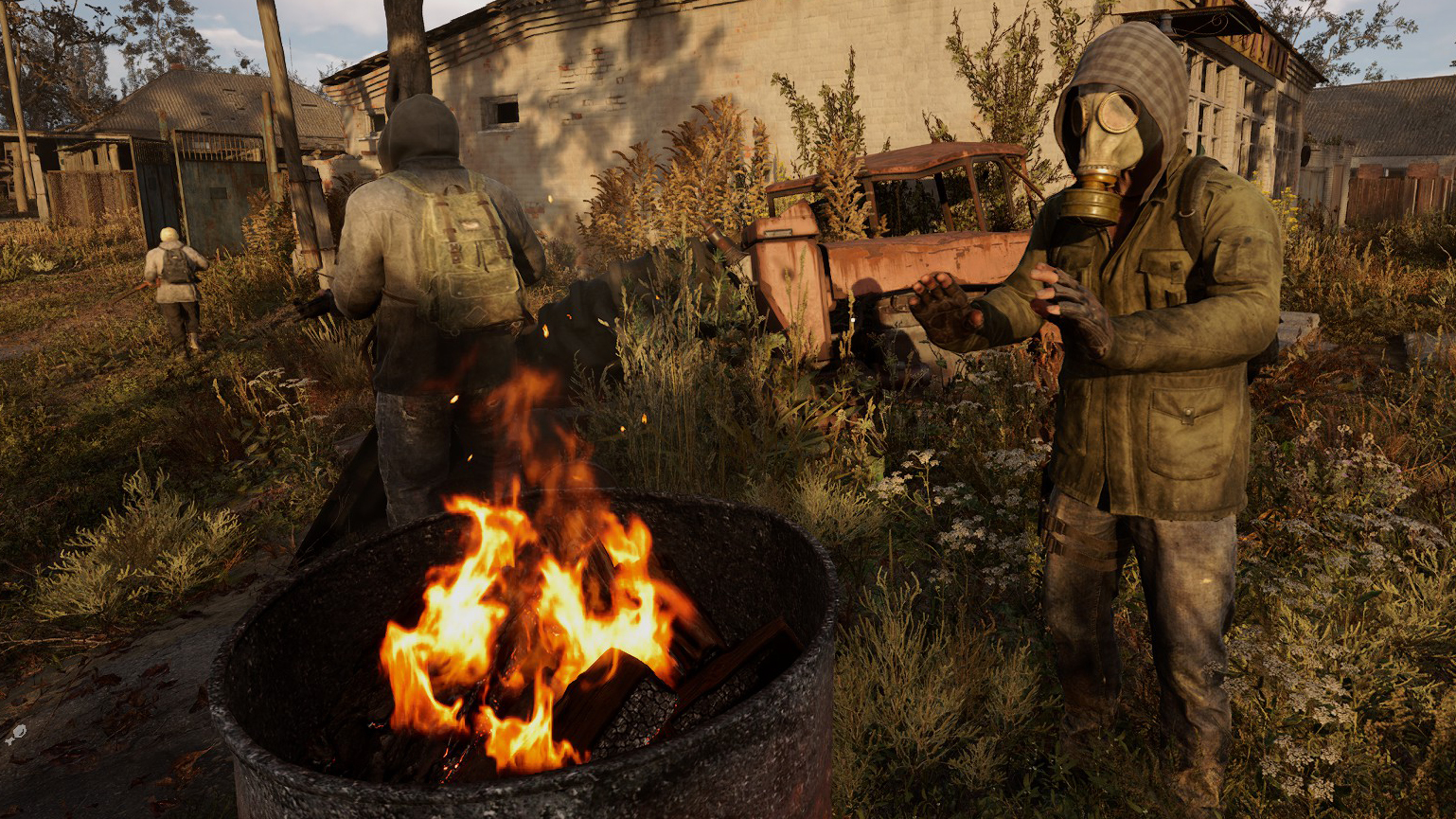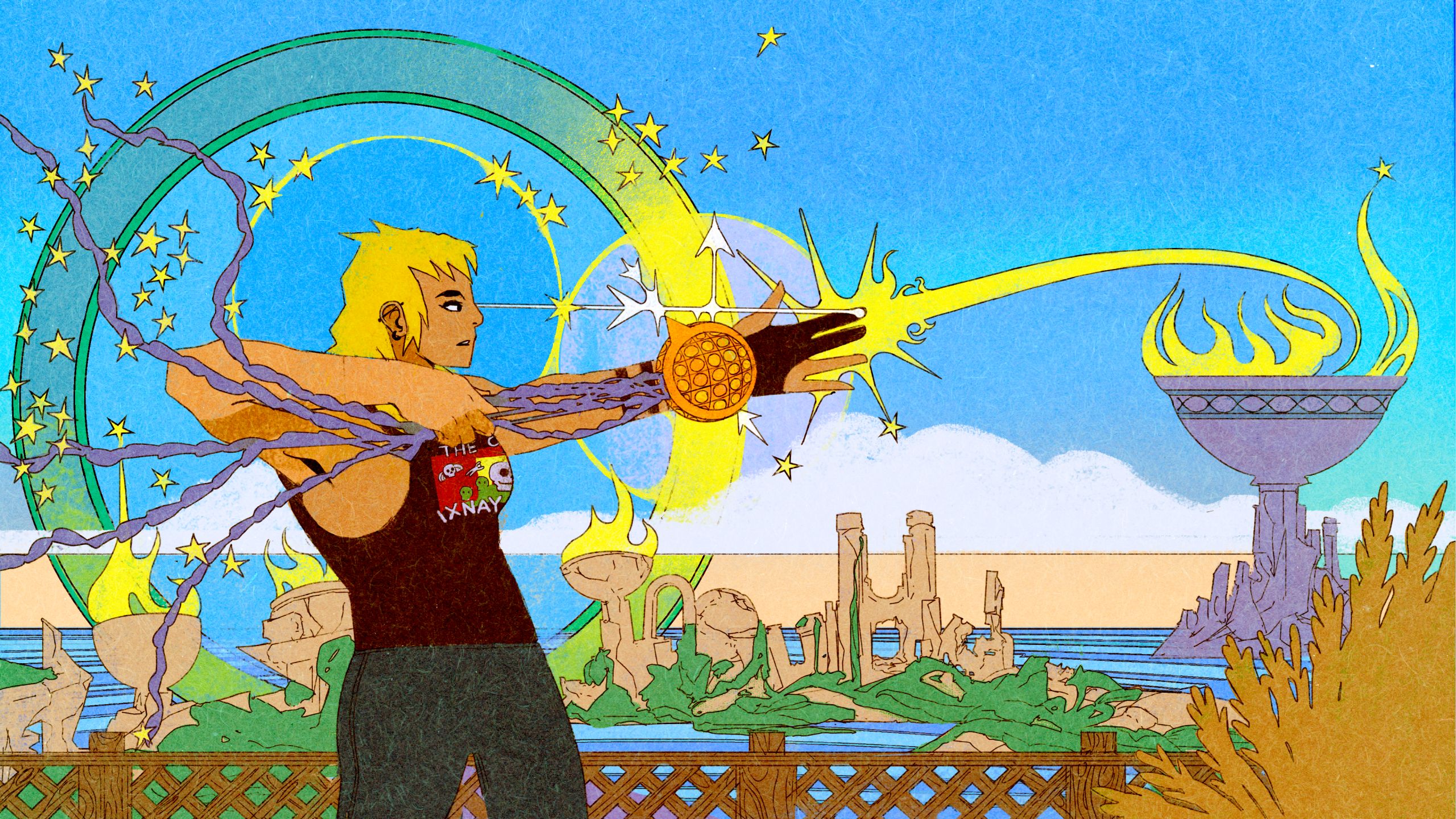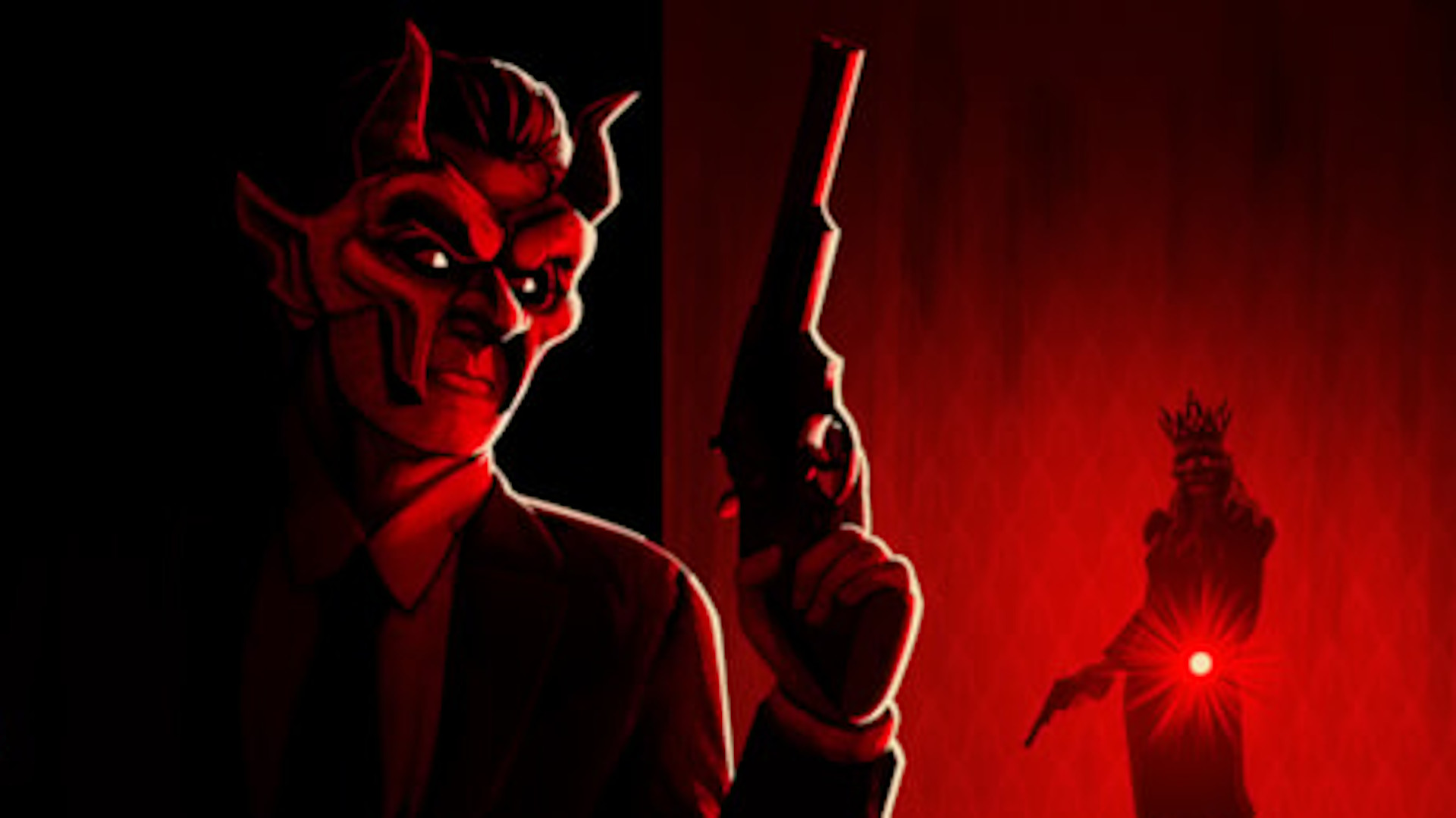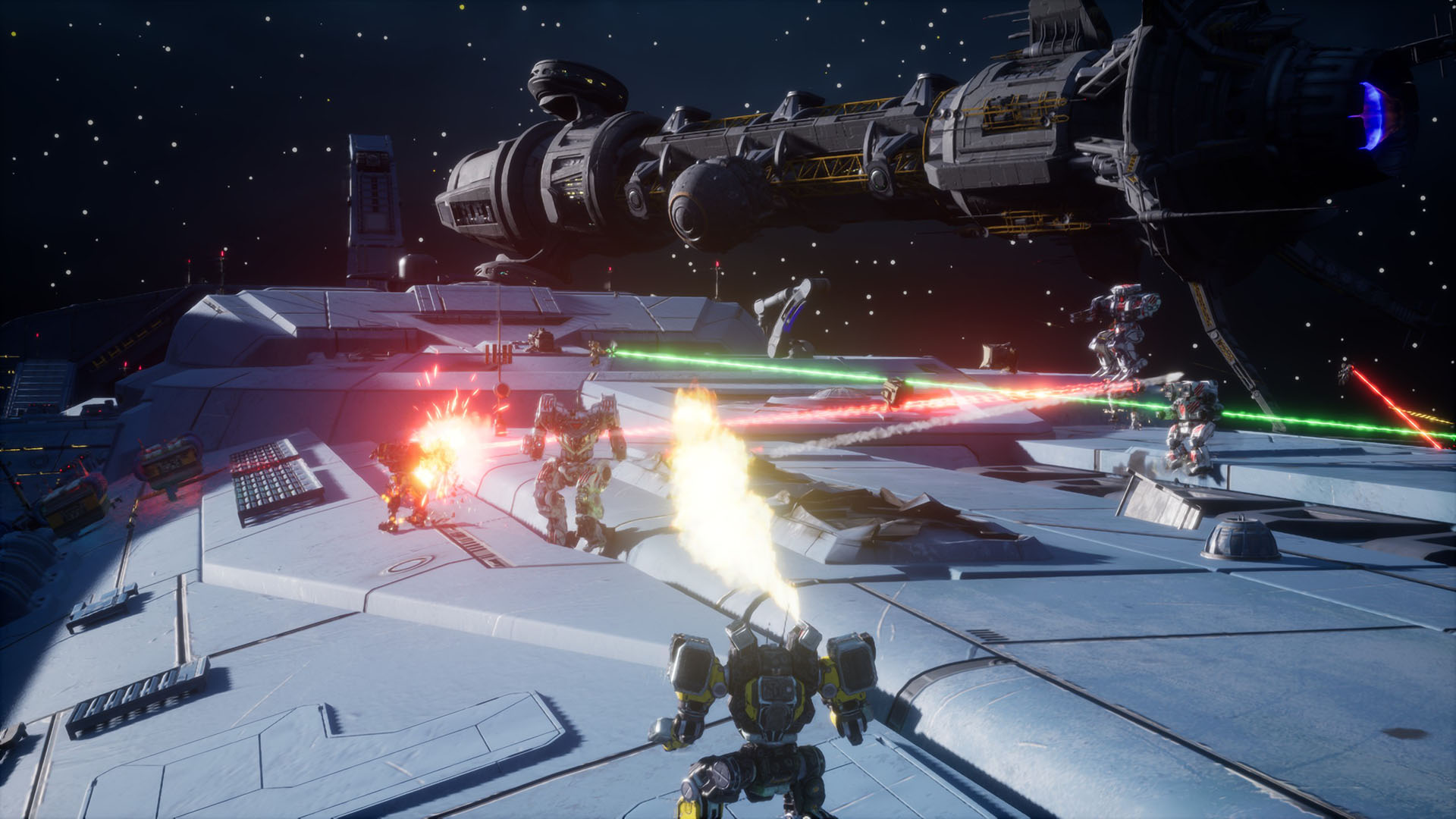2007’s Stalker: Shadow of Chernobyl was one of my first steps into the world of survival games. It was a stark contrast to most other games I was playing at the time, representing not some power fantasy about being a nigh-indestructible badass but instead a cold and indifferent world where I was fragile and weak. I never felt like a glorious hero. Hell, I didn’t even feel like the main character. Stalker was exciting because it simulated me as just another guy who could be killed—imagine this—by a single bullet.
Headshots weren’t the only danger to my mortal body in Shadow of Chernobyl: bleeding, radiation poisoning, and hunger could kill me, not to mention getting ripped apart by anomalies. There was no fast travel, so every journey had to be carefully prepped for while still leaving enough room in my limited inventory space to bring stuff back. It was a shockingly tough survival experience filled with dread, tension, and countless unceremonious deaths. Even in the late game with advanced armor and weapons, I never truly felt safe or powerful.
In the 15 years since the last Stalker game, Call of Pripyat, the survival genre has done a lot of growing. Games have introduced far more complex survival systems than were in the Stalker series. There are food and cooking systems in games like DayZ and SCUM that calculate how much food fits in your stomach, simulate food poisoning and sometimes even track fat and carbs. In other games, like Valheim, food buffs and meal combinations make your diet as important as the armor you wear.
Crafting systems have also exploded since 2010, not always in the best ways—like when it’s shoehorned into shooters that don’t need it—and along with systems for basebuilding, you can really live in a lot of survival games, harvesting what you need from the world instead of just buying or trading with vendors.
With all that’s happened in the survival genre in the past 15 years, I was intensely curious to see how Stalker 2 would handle survival in 2024. Would it be more complex like many of the games we’ve seen in the past decade and a half? Or would it be leaner and more accessible? Has Stalker, which influenced so many other survival games, been influenced by those games in turn?
The answer is, uh… No. Nope. Negative. In terms of survival systems, Stalker 2 really hasn’t changed at all. In the Zone, the last decade of survival games may as well not have even happened.
Time Warp
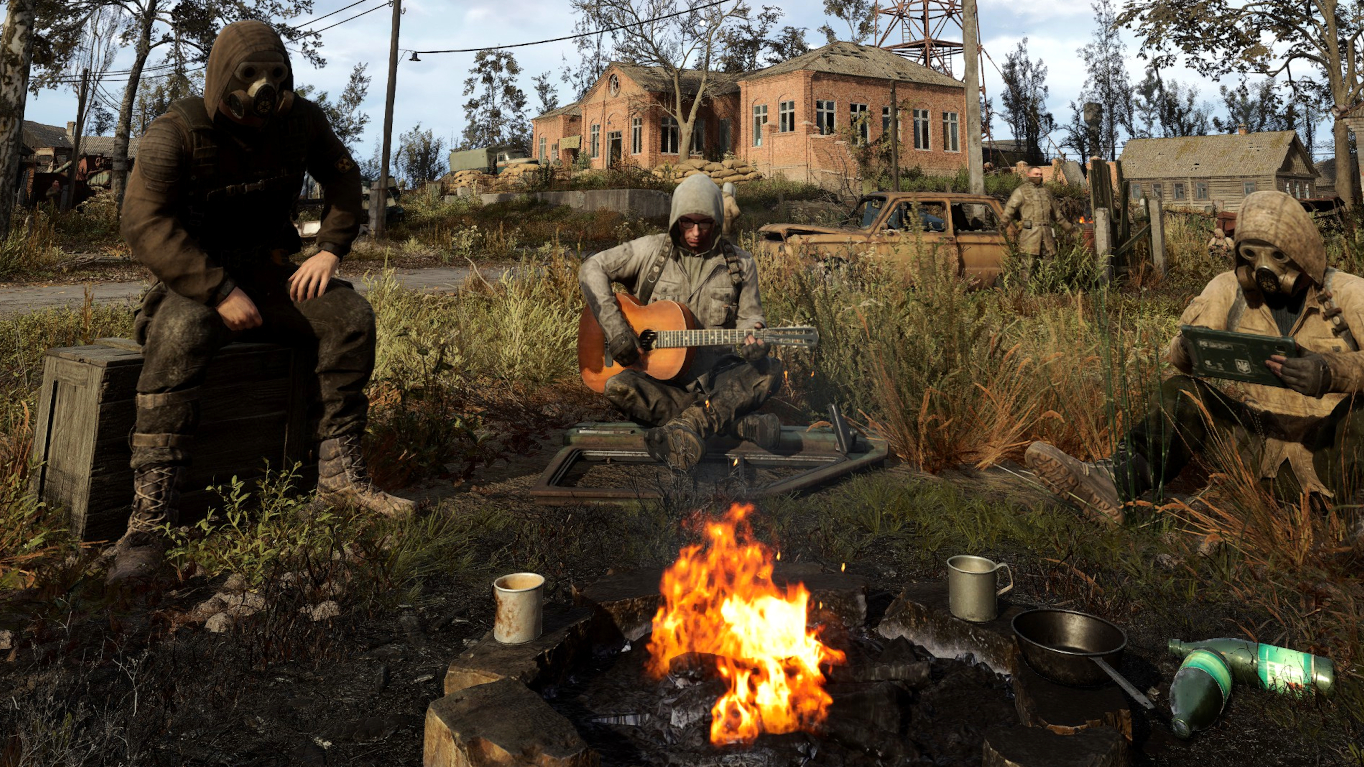
In a way, it’s comforting. When I started playing Stalker 2 this week, it was like a homecoming. When a food icon appears on my screen I eat a hunk of bread or open a can of meat shapes. That’s it. That’s Stalker 2’s entire food system. If my weapon degrades, I don’t have to scavenge gun parts to repair it, or cobble together a new stock or scope from scrap while hunched over a workbench. I just take my busted weapon to a guy and pay him to fix or upgrade it. Same as it ever was.
I can’t help envisioning a version of the game where I don’t have to pay an NPC an exorbitant fee to fix my guns
I’ve come to appreciate simplicity. Sometimes I have to psyche myself up to play new games simply because many of them have so many systems the first few hours have to be spent learning things, which is exhausting. Stalker 2’s tutorial was basically WASD to move, CTRL to crouch, SHIFT to sprint. Good luck! Wilmot Works It Out has a longer tutorial than Stalker 2, and it’s a cozy jigsaw puzzle game. There’s something great about jumping into a game and not needing a wiki open in a second screen just to figure out if a can of beans will buff my stamina better than tinned peaches.
But as a survival fan I can’t say I’m not a little disappointed that Stalker 2 hasn’t grown a little. I don’t necessarily think it needs a huge crafting system or an elaborate cooking system. Maybe it would be actively annoying to have to collect gun parts or kevlar scraps or metal screws or whatever else would be needed to fix and upgrade my weapons and gear.
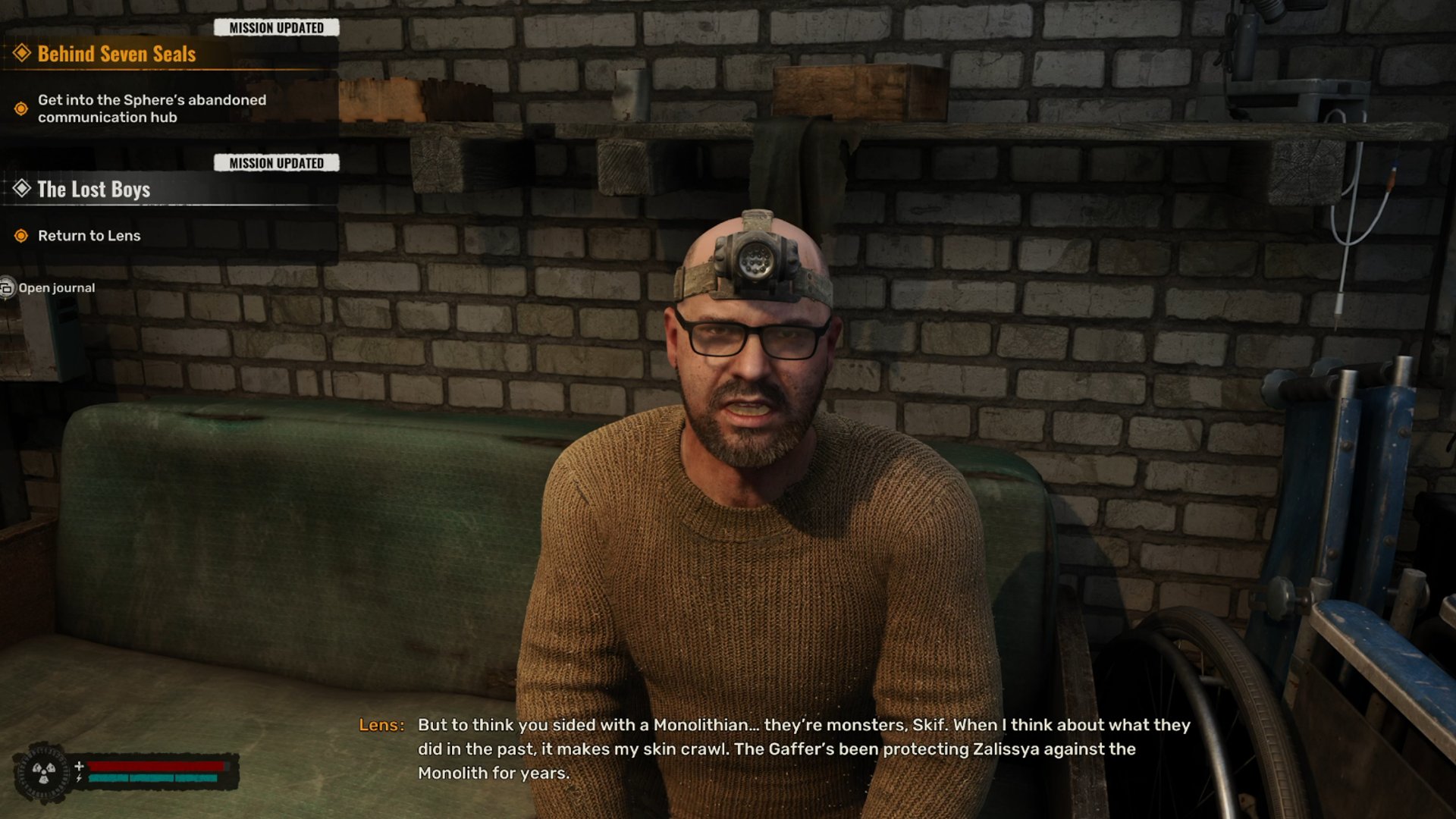
But I can’t help envisioning a version of the game where I don’t have to pay an NPC an exorbitant fee to fix my guns but where I have the agency to work on them myself. Maybe crafting a few extra bandages from the fabric of a dead bandit’s jacket would make me feel a bit more of a survivalist than going to the town store on a shopping trip. Maybe instead of sleeping on my cot to wait out a thunderstorm, I could happily pass the hours by tinkering with my gear.
And sitting around the campfire with a guitar is cool, but putting a sausage on a stick and roasting it over the flames would be pretty immersive. The same way a gravi artifact on my belt improves my carry weight, maybe some Bloodsucker stew would buff my stealth a bit while I digested it. In a pinch, while far from safety, I might cut myself a steak from a dead irradiated dog and chow it down. I’d expect a ton of radiation poisoning, but hey, I’ve got vodka to deal with that.
I’m enjoying Stalker 2 a ton just the way it is. At the same time, when it comes to its survival systems, I was hoping for a bit more.







